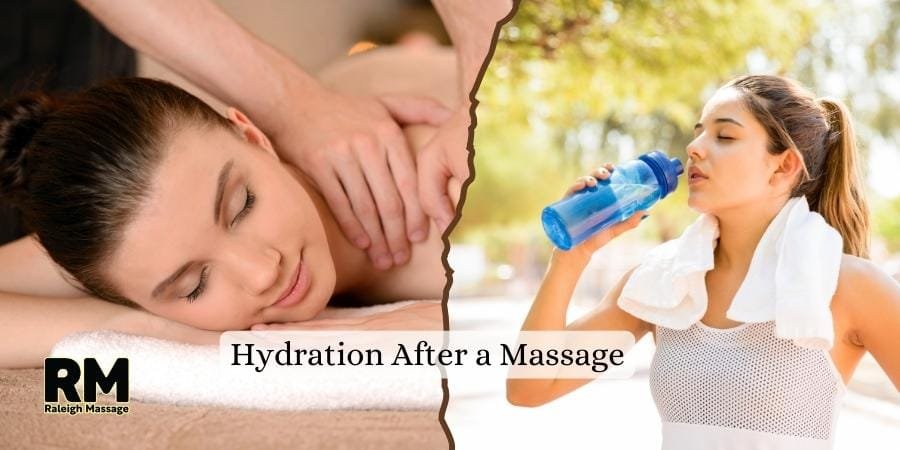Have you ever felt dizzy or extra tired after a massage? That might be because you didn’t drink enough water. Hydration before and after a massage is more important than most people realize. A massage helps to release toxins, improve circulation, and relax muscles. But without proper hydration, your body cannot effectively remove these toxins.
If you’re having a massage, your body must first be prepared for it. And that begins with hydrating with water. After a massage, your body must have additional hydration in order to recover. Let’s explore why proper hydration is such a critical part of both preceding and following a massage.
Why Hydration Matters Before a Massage
You might think massage is just about relaxation. But it’s also a workout for your body. The therapist applies pressure to your muscles, improving blood circulation and loosening tight areas. If your body is dehydrated before the massage, your muscles may not respond as well.
Water helps keep your muscles soft and flexible. When you are well-hydrated, the therapist can work more effectively. Dehydration makes muscles tight and stiff, which can make the massage more painful.
Another important reason to drink water before a massage is to support your circulation. Massage improves blood flow, but if your blood is thick due to dehydration, it won’t circulate as well. This means fewer nutrients reach your muscles, and the benefits of the massage are reduced.
So, what’s the best way to hydrate before a massage? Start drinking water at least an hour before your session. Small, frequent sips work better than chugging a large glass all at once.
The Role of Hydration After a Massage
After a massage, your body goes into recovery mode. Your muscles have been stretched, your blood flow has increased, and toxins have been released. Now, your body needs water to flush those toxins out. If you don’t hydrate, those toxins can stay in your system, leading to soreness, fatigue, or even headaches.
Drinking water after a massage also helps prevent dehydration-related side effects. Many people feel lightheaded or dizzy after a deep tissue massage. This happens because the massage stimulates circulation and movement of fluids in the body. Without enough water, you might feel sluggish or even sick.
Rehydrating after a massage also supports faster muscle recovery. Your muscles need water to repair and rebuild. If you have a sports or deep tissue massage, drinking water can help prevent stiffness the next day.
How Much Water Should You Drink?
You don’t have to consume gallons of water, but pay attention to your consumption. Here’s an easy-to-use guideline:
- Before a massage: Have a glass of water one hour prior to your session. If you’re one who drinks a lot of water during the day, one glass will suffice.
- After a massage: Drink a glass of water right after your session. Drink water throughout the day.
- Listen to your body: whenever you feel thirsty or tired, take a sip of water. Each person’s water consumption level is different.
Signs You Need More Hydration
Sometimes, it’s hard to tell if you’re dehydrated. Here are some signs to watch for before and after your massage:
- Dry mouth or lips
- Feeling dizzy or lightheaded
- Headache
- Fatigue
- Dark yellow urine
- Muscle cramps
If you notice any of these signs, drink more water. Your body is telling you what it needs.
Hydration Tips for Better Massage Results
If you want to maximize your massage, utilize these simple tips for proper hydration:
- Start your morning with water: Begin with a glass of water in the morning, even before your massage.
- Avoid caffeine and alcohol: Caffeine and alcohol both make your body become dehydrated. Try to restrict them both in advance and afterward.
- Eat water-rich foods: Cucumbers, oranges, and watermelon can count towards your water intake, as well.
- Carry a water bottle: Having a water bottle with you will remind you to hydrate during the day.
- Don’t overdo it: Excessive water at one time can be uncomfortable. Take small quantities at regular intervals.
Hydration before and after a massage isn’t just a small detail—it’s a game-changer. Drinking enough water can make your massage more effective, reduce soreness, and help your body recover faster. If you want to get the most out of your next massage, start with good hydration habits. Your body will thank you for it!








